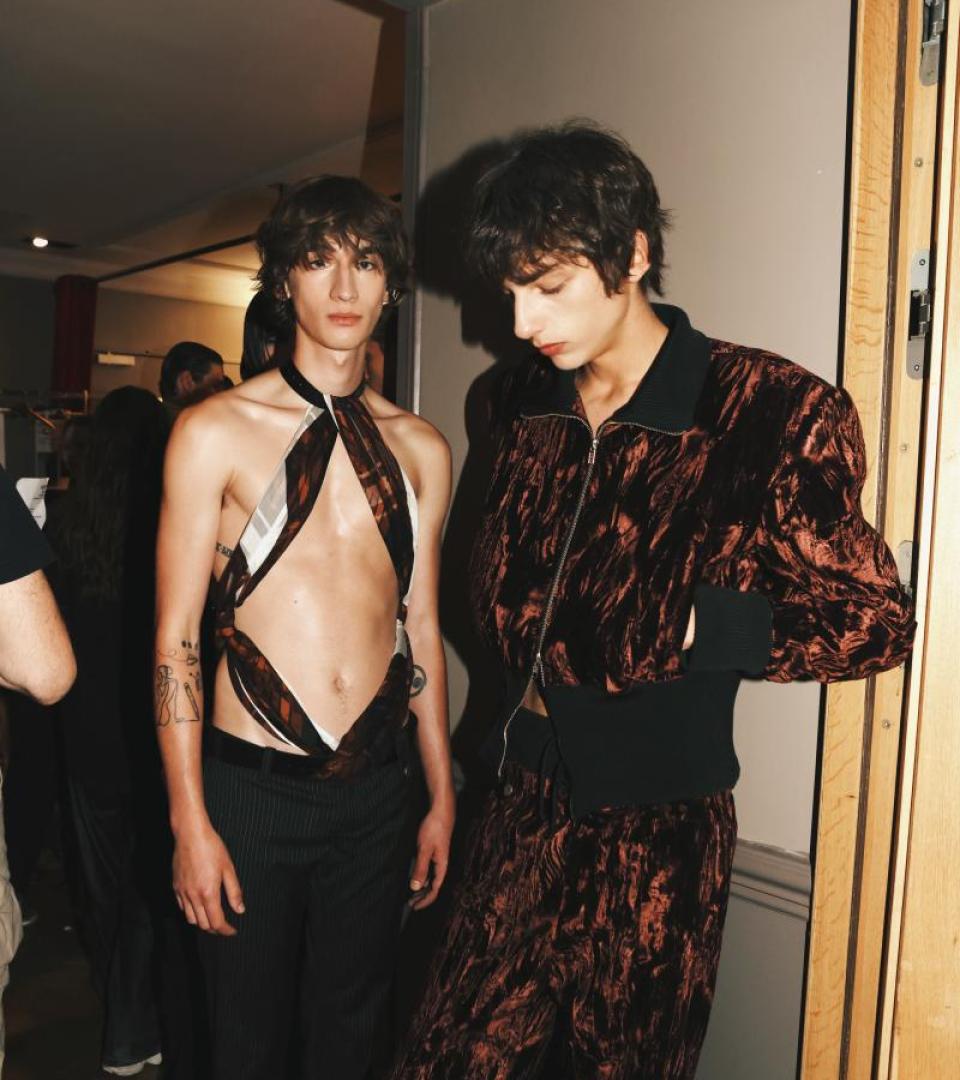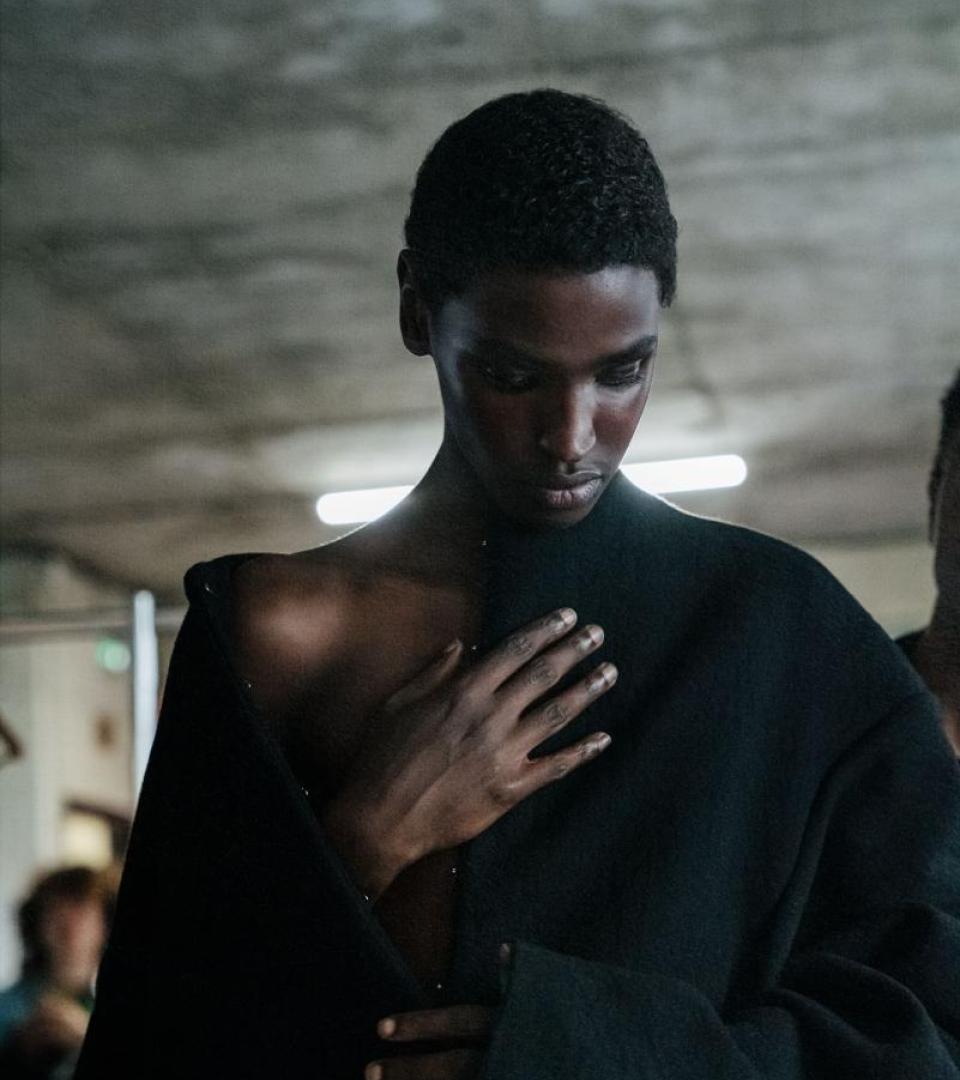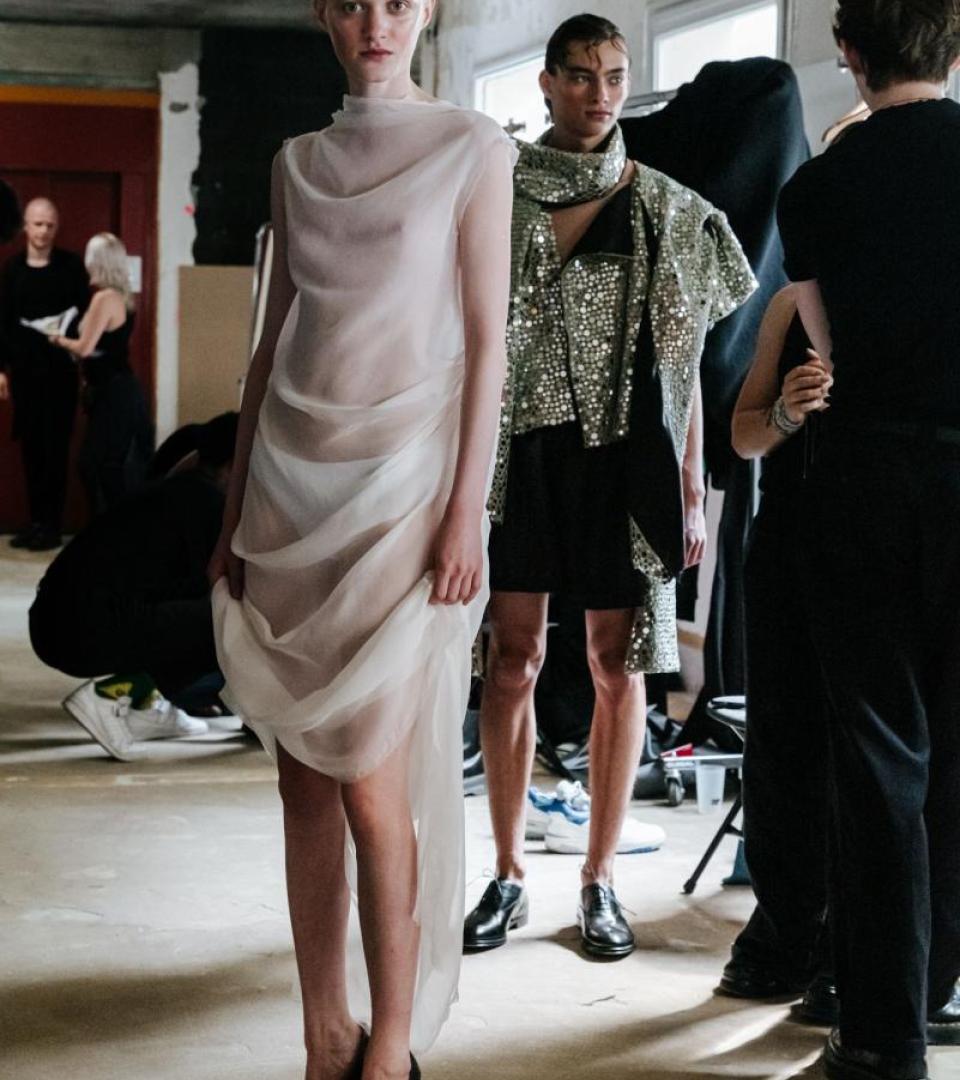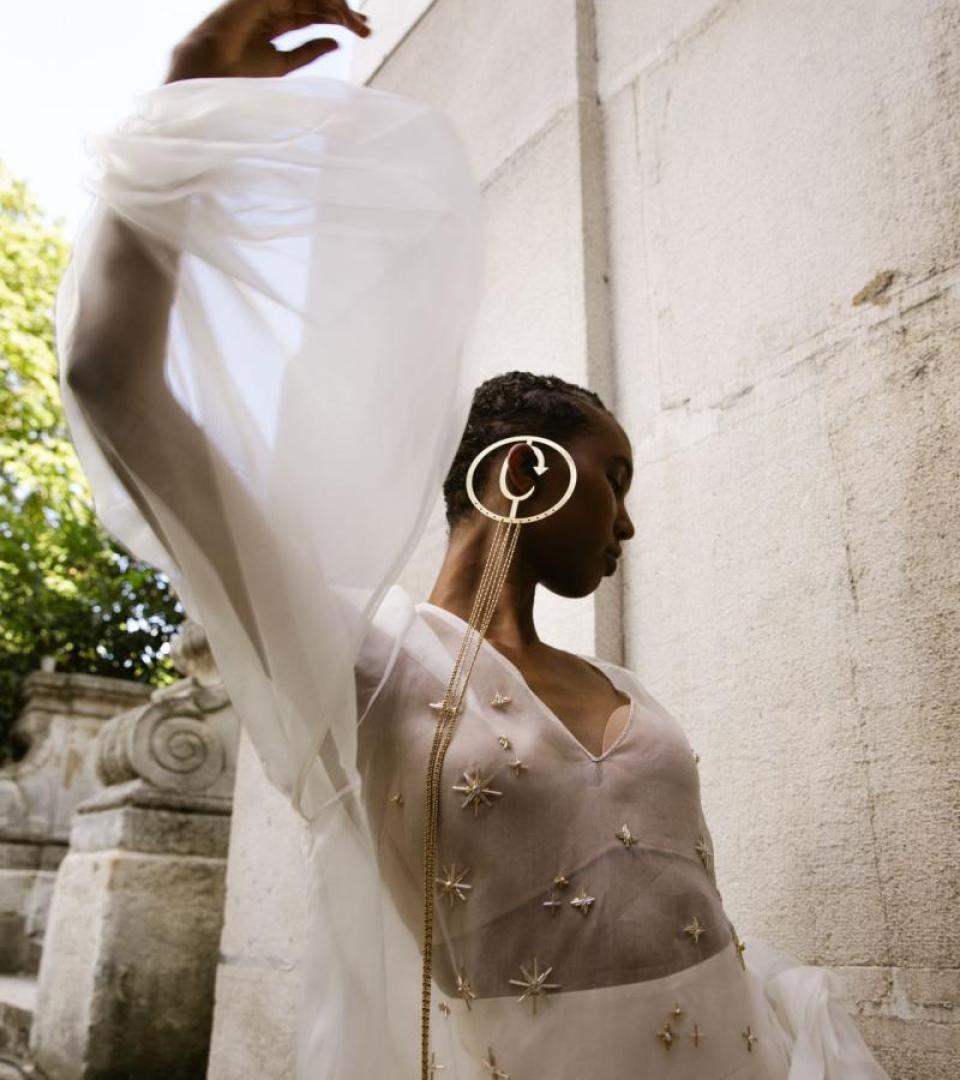Andrée-Anne Lemieux: “We have everything it takes to transform the fashion industry towards sustainability.”
Since 2019, Andrée-Anne Lemieux leads the IFM-Kering Sustainability Chair, steering sustainability initiatives at the Institut Français de la Mode. Born in Montreal and educated across Canada, China, and Paris, this spirited PhD candidate in engineering sciences and industrial engineering channels her boundless energy into her work. With unwavering optimism, she encourages her students to take part in what she describes as, “the most significant transformation our industry must undertake.”
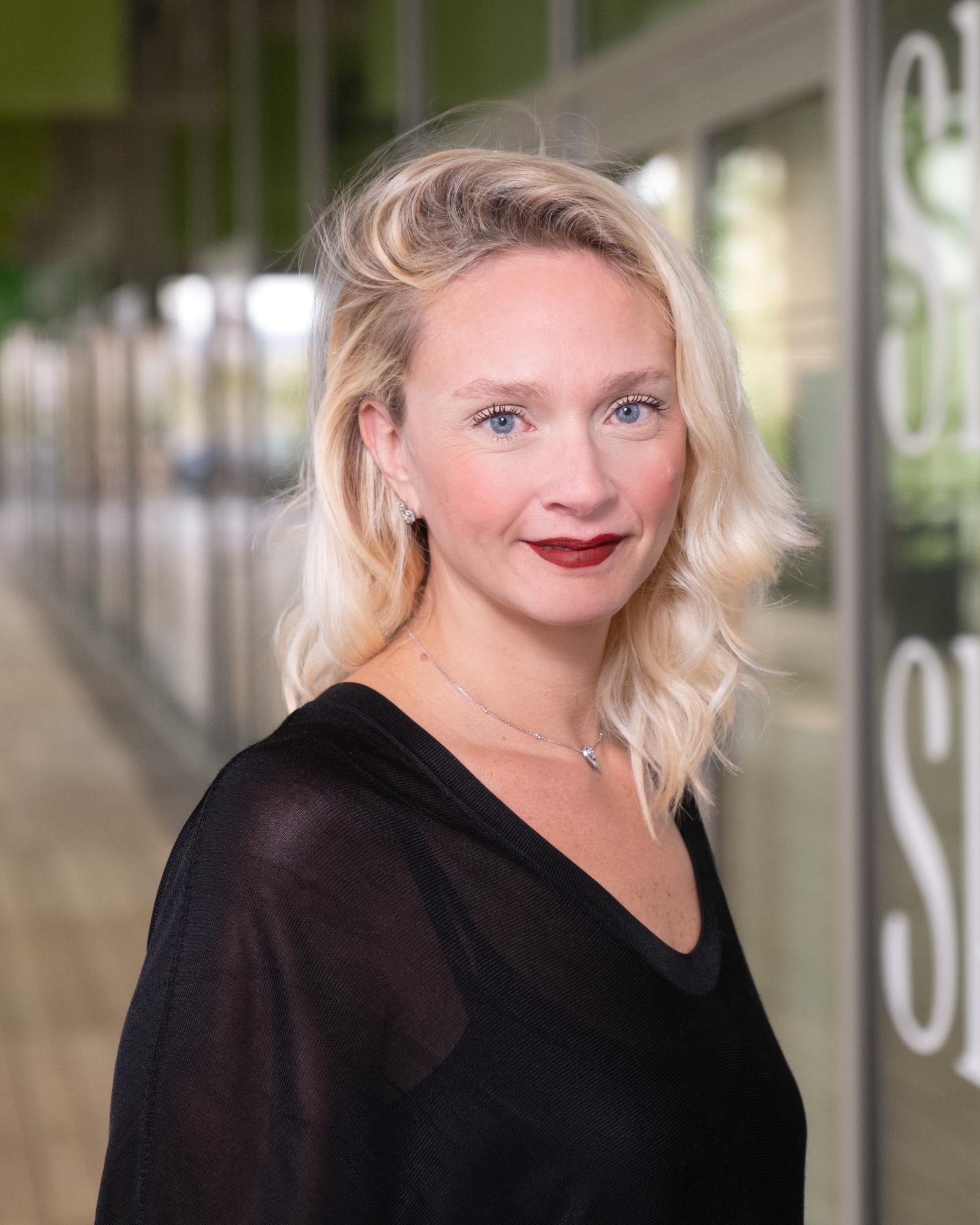
In 2019, the Institut Français de la Mode set forth on a new chapter, merging with the renowned École de la Chambre Syndicale de la Couture Parisienne. This marked the creation of the IFM Foundation, uniting nearly 40 of the most prestigious players in luxury and fashion. “Among other initiatives, the Kering Group wanted to establish a research chair focused on sustainable transformation. The profile they were after was anything but ordinary: someone with hands-on industry experience who could also lead scientific research.” Lemieux turned out to be the perfect match. A PhD candidate in Engineering Sciences at École Nationale Supérieure d'Arts et Métiers and in Industrial Engineering at École Polytechnique de Montréal, she is also a seasoned expert in driving major transformations. At just 22, she moved to China to learn Mandarin “because the Chinese market was booming,” and even took the chance to climb the first summit of Everest (5,300 meters). She has always leapt wholeheartedly into the opportunities life presents her. “That’s the adventurer in me,” she says with a grin.
Under the leadership of Xavier Romatet, Dean of IFM, and Sylvie Ebel, Deputy Dean, Lemieux made sustainability a central focus of the school’s programmes from the moment she took on the role. “Today, every student has at least 25 hours of mandatory classes each year on sustainability-related challenges. In 2024, that totalled 595 hours across all programmes,” she notes.
“I joined the Institut Français de la Mode to train the talents of tomorrow. But why wait for tomorrow? We can start today!”
While theoretical learning and scientific research are fundamental to her students’ education, Lemieux firmly believed from the outset that immediate, tangible impact was possible. She launched a programme of contribution-based projects, where “students are required to concretely demonstrate, within six months, how they’ve contributed to transforming the industry.” Since the Chair was established, 46 projects have been initiated, tackling a wide range of sustainability challenges, from environmental to social issues. One striking example comes from a clear and pressing observation: the number of homeless people in France has doubled over the past decade. “Last year, students designed and produced over 700 pieces, including baby carriers, sub-zero suits, polar muffs, pocket vests, hooded scarves, all made of unsold stock donated by major fashion houses. A solidarity workshop handled production in exchange for services offered by the students. Some taught sewing classes, while others helped individuals far from the job market write CVs or prepare for job interviews. The materials used came from unsold stock donated by major fashion houses.”
Joining forces with the Utopia 56 charity, which provides survival essentials, the students bring clothes and so much more. Through this collaboration, the students are developing entirely innovative business models, “and ultimately, everyone benefits, as there is miles of unsold stock languishing in warehouses. It’s truly a win-win for all. And it transforms the students’ outlook, providing them with invaluable hands-on experience.”
Teaching sustainable development is built on three key pillars: theoretical learning through lectures and organised talks; practical work through projects; and finally, scientific research. “I supervise several PhD students, including two who are soon to defend their theses. Everything develops naturally, with a collaborative approach. For instance, on the subject of upcycling, we recently submitted an article to the prestigious American journal Nature, based on 80 interviews we conducted in Ghana, South Africa, Norway, France, and Indonesia, where one of my PhD students is based. The goal was to explore the different approaches to product end-of-life management.”
“We need to open a reciprocal conversation, within a global community, between the Global North and the Global South.”
Lemieux, convinced that the transformation of the fashion industry can only be achieved collectively, travelled to Ghana and Benin, two countries overwhelmed by the massive influx of second-hand textiles from Western countries and Asia. “We wanted to truly understand what sustainability meant for those dealing directly with the end of a product’s life.”
Images of mountains of clothes scattered across beaches have gone viral on social media. These items, often unusable due to being made from non-recyclable synthetic materials, are being reinvented. “We also have a lot to learn from local circular economy models. In Benin, at one of the second-hand markets, I met Rodrigue, a tailor who makes 20,000 (yes, that number is correct) pillowcases a day from old sheets. When some people tell me that upcycling can be difficult to implement, others are doing it under harsh, survival conditions. We need to make it work in the Global North, and that can only happen through a reciprocal conversation, within a global community.”
“We’re planting seeds, we’re doing inception.”
“Last year, we presented a bill to the [French] Senate to make sustainable fashion a mandatory subject in primary schools.” With recent political shifts in France, the project has hit a bit of a standstill yet remains ongoing. “I didn’t want to wait. We ran workshops in primary schools. We developed a complete, ready-to-use programme. And we even created a card game.” The aim is to teach responsible consumption habits from a young age – habits that we, as adults, haven’t always embraced and have had to rethink. “We’re planting seeds, we’re doing inception. For example, the “Repair” card is a bonus card, so instead of using a new “Trousers” card, you play your “Repair” card, and it gives you an extra chance to win.” Still in prototype, the game will be marketed. “It’s not about turning it into a business or selling it as the ultimate sustainability game. It’s a fun tool, and a huge lever for transformation.”
“Sustainability is a transdisciplinary and complex subject. We can’t just jump straight to the solution, or we’ll get it wrong.”
When talking about durability, two dimensions are distinguished. The “intrinsic” durability, which refers to the physical durability of the product – “that is, its actual lifespan, measured by washing, abrasion, and fading.” But also, particularly when it comes to designer products, an “extrinsic” durability, which involves “the emotional, cultural, and social durability of the product.” This deeper understanding of clothing is one of the central aspects of the regulation issues facing the textile industry both in France and Europe. It is necessary to ensure that fast-fashion textiles and those from creative fashion are not grouped under the same banner. “We’re conducting a detailed transdisciplinary state of the art [analysis], combining psychology, sociology, marketing, economics, and design – it’s very holistic. These are such complex issues, we can’t just rush to a solution. So, we’re taking our time, working on it deeply, to get there.”
“We know it, and scientists agree that we already have all the keys to make this transformation happen.”
“An example that gives hope is the paper industry. Today, the majority of paper is recycled paper, and that wasn’t the case 20 years ago.” This shift proves that transition is possible when it’s based on collective organisation and technological advancements. “Technically, the solutions already exist. What matters is the scaling up of technologies and the ability to agree on common operating models.” While sorting is still largely manual in many sectors, including fashion, the parallel with the paper recycling chain is an inspiring example, offering hope for similar progress in other industries.
Andrée-Anne Lemieux views the transformation of the fashion industry with optimism, believing it hinges on a collective mobilisation structured around three pillars. "The second third relies on legal frameworks and large institutions, which must create essential standards and frameworks. The final third concerns the private sector, which must transform from within, through collective decisions and responsibility at different stages of maturity. And the final third is us, the citizens. We all consume. Our individual choices matter,” says Lemieux. “We are in a transformation of our value system."
Reuben Attia.
